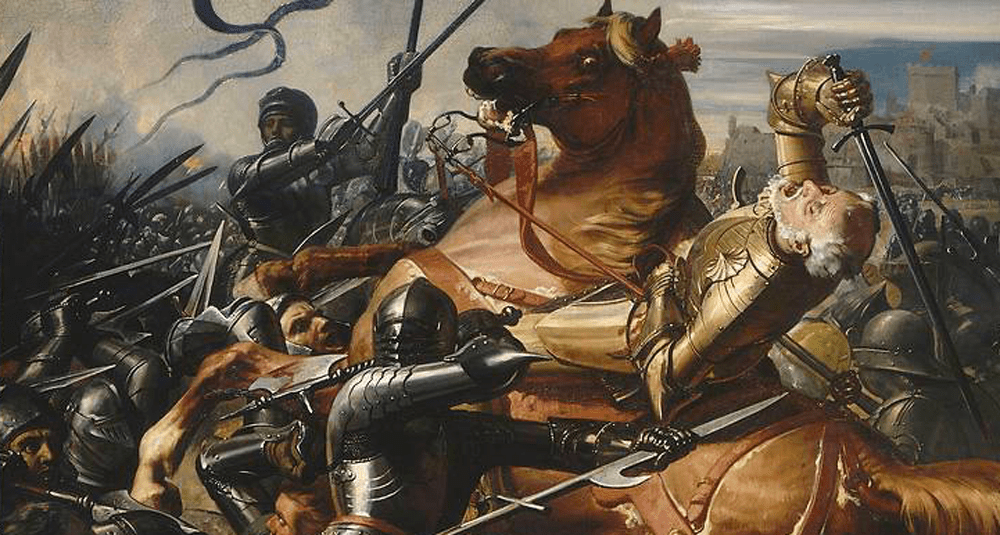What battle ends the Hundred Years’ War?
Last Updated:
The Hundred Years’ War, a long conflict between the French and English kingdoms, ended with the Battle of Castillon on July 17, 1453. This battle marked a decisive victory for the French and put an end to more than a hundred years of intermittent warfare between the two powers.
The Hundred Years’ War began in 1337 and continued in several phases until 1453. The conflict had its origins in territorial and dynastic claims, notably the claim of the kings of England to the throne of France as descendants of the Capetian dynasty.
The war can be divided into several key periods, each marked by truces and renewed fighting. Famous battles such as Crécy (1346), Poitiers (1356) and Azincourt (1415) punctuated this epic conflict.
In 1453, the French forces, led by master gunner Jean Bureau and the Bureau brothers, concentrated on reconquering the territories still under English rule in Guyenne. The English, commanded by John Talbot, Earl of Shrewsbury, prepared to defend their strategic position at Castillon.
The Battle of Castillon was notable for the effective use of artillery by the French. Jean Bureau’s cannons played a crucial role in inflicting heavy losses on the English forces. In an ill-prepared attack on the fortified French positions, John Talbot was killed, disorganizing the English troops and leading to their rout.
The defeat at Castillon was catastrophic for the English. The loss of this battle led to the fall of Bordeaux and Guyenne, the last English strongholds in France, marking the end of their territorial ambitions on the continent.
The French victory at Castillon and the fall of Bordeaux put an end to the Hundred Years’ War. Charles VII, King of France, succeeded in restoring royal authority over the entire kingdom, with the exception of Calais, which remained under English control until 1558.
The end of the Hundred Years’ War brought major changes to France and England. In France, the outcome of the war led to the consolidation of the centralized state under the Capetian monarchy. In England, the defeat contributed to internal unrest, notably the War of the Two Roses, a series of dynastic conflicts for the English throne.
The Hundred Years’ War had a profound influence on the history of France and England, altering the political, economic and social structures of both nations. The advent of artillery and standing armies also marked an important evolution in warfare methods.
The Battle of Castillon and the Hundred Years’ War remain subjects of study and commemoration in France and England, symbolizing centuries of rivalry and European transformation.
The Battle of Castillon, which took place on July 17, 1453, put an end to the Hundred Years’ War. This decisive French victory over the English marked the end of hostilities and the reconquest of lost territories, consolidating the power of Charles VII and transforming the political and military landscape of medieval Europe.
history

What battle ends the Hundred Years' War?
Answer
The Battle of Castillon, which took place on July 17, 1453, put an end to the Hundred Years' War. It marked the decisive victory of the French over the English.